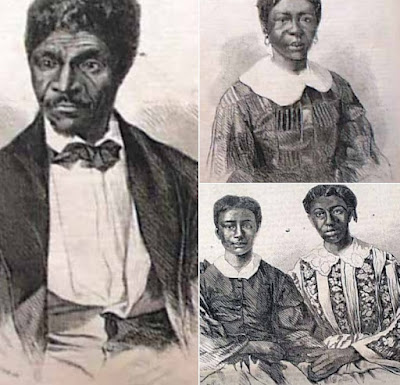Dred Scott, an enslaved person, petitioned the court to declare himself and his family free based on their temporary residence in a free state and territory. Unfortunately, he lost his case on a technicality.
An appellate court overturned the decision and ordered a new trial. The court found in favor of Scott and his family. The case went to the Missouri Supreme Court, where they ruled against him.
From there, the case went to the United States Supreme Court, which ruled that African Americans, whether freemen or slaves, were property and had no standing to sue in federal courts. The court said that Congress had no authority to regulate slavery in states or territories gained after the formation of the United States.
Chief Justice Roger B. Taney and President James Buchanan assumed the Dred Scott decision settled the slavery issue—once and for all. Instead, it fanned the flames even more. Northerners worried the decision would cause slavery to be organized in the newly created western states. For the South, it reinforced their belief that slavery was here to stay and that abolitionists were enemies of the Union.
Of course, things are never as easy as they seem or as straightforward. For Dred Scott, the decision meant he and his family were doomed to remain slaves.


No comments:
Post a Comment